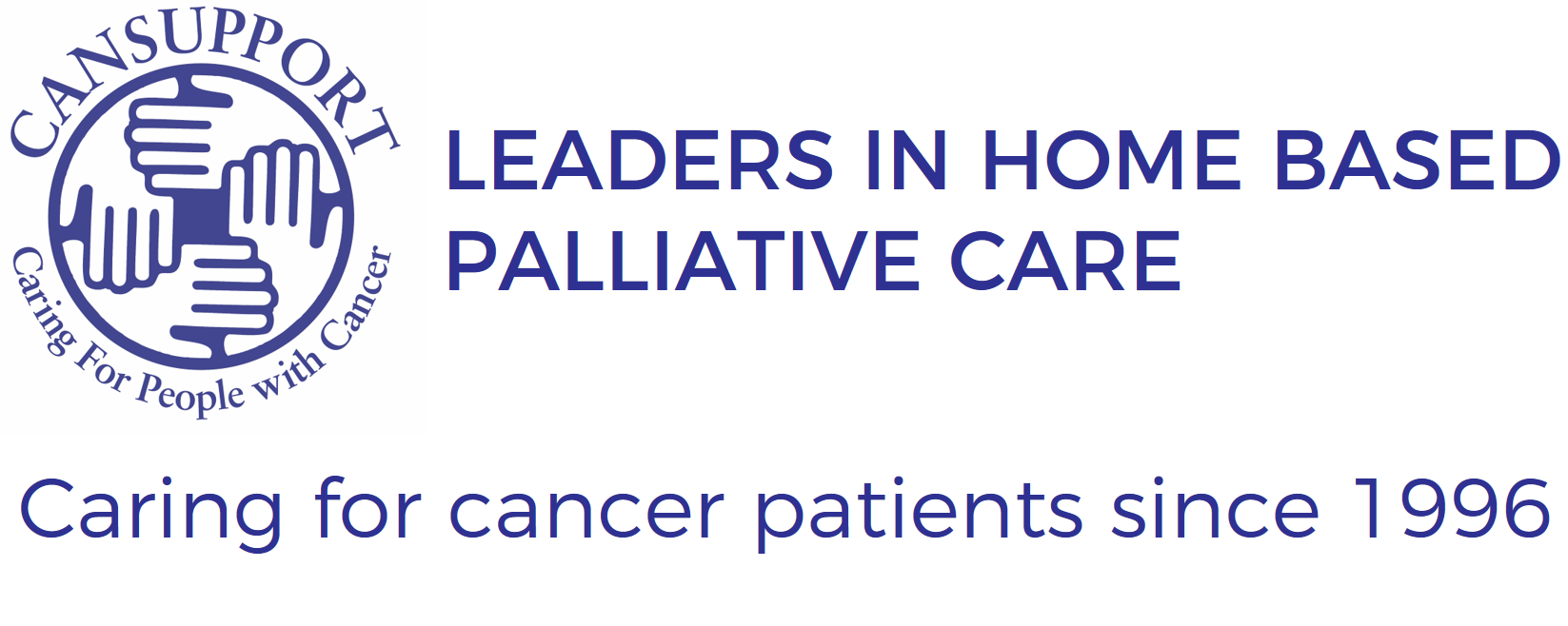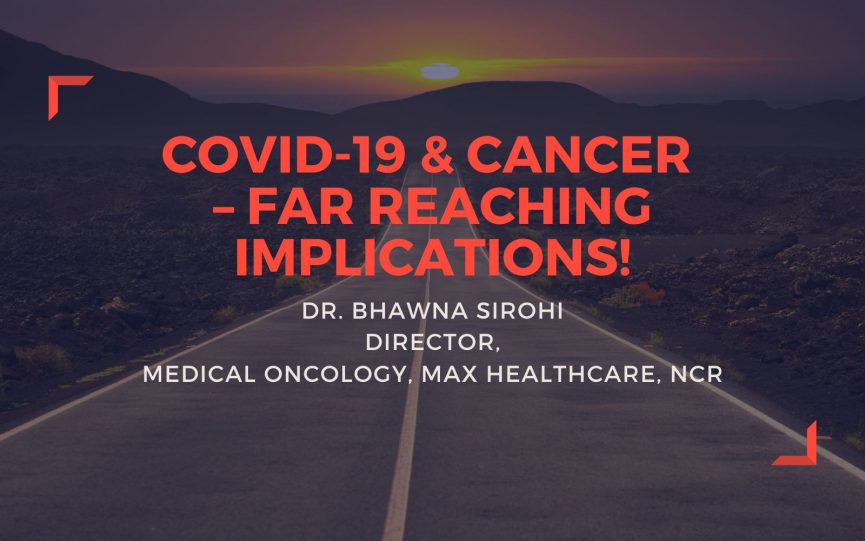Article by Dr Bhawna Sirohi
Director, Medical Oncology, Max Healthcare, NCR
Despite many advances and breakthroughs, cancer still strikes fear in most of us. Every cancer patient is worried, stressed, anxious and has one question on their minds – will my treatment be compromised by the current circumstances? Very likely, it will. But given the risks associated with the COVID-19 infection in immune-compromised patients, those with co-morbidities and with advanced age, it would be sensible to delay any further treatment that will compromise the immune system further. None of us knows how long the risks are going to last, so I am going to discuss some practical considerations here.
Questions I am being asked are:
If you delay my chemotherapy, will I still be cured? Will my cancer spread if you delay surgery? Will my cure rate go down? Will my cancer come back? These are valid questions from patients who are already under tremendous stress because of their diagnosis, treatments and side-effects and multiple hospital visits.
Cancer patients on treatments do have to visit the hospital multiple times for various reasons – blood tests, physiotherapy, chemotherapy, radiotherapy, flushing of lines, removal of infusion pumps and to receive supportive care injections. Some of these can be done at home but in these trying times of limited public facilities to travel, this is near-impossible. Moreover, any contact with a healthcare worker is the biggest risk factor. These issues need to be addressed individually with a shared decision making model between the patient, family and the oncologist. These questions are affecting patients physically, psychologically, emotionally and financially. All our lives will have to be readjusted in the coming months. One size will not fit all!
It is quite possible that we may end up under treating a few patients and may compromise outcomes in the long run but this must be weighed against the clear threat from the COVID-19 which may also increase deaths short-term. To try and improve 5 or 10 year survival outcomes marginally and to ignore the real risk of dying now due to COVID-19 is impractical.
Cancer patients are particularly vulnerable to the COVID-19 as their immune systems are compromised as a result of the cancer itself and the treatments given. Evidence from China and South Korea shows that the implications are long term, at least for the foreseeable next 3-6 months or even longer. This will change the way we treat cancer patients as treatments cannot be delayed for so long.
I am continuously being asked about home-based respirators and chloroquine. Based on reports, it is possible that some patients after initial stabilization may require respirator support for a few weeks. This will have to be medically supervised, hence having a respirator / oxygen unit at home is not going to help without medical support. Regarding chloroquine, this is an anti-malarial drug which is well tolerated and is used widely also for treatment of rheumatoid arthritis. The Indian Council of Medical Research has approved the drug for prevention in high risk health care workers and those in close contact with patients affected with the COVID-19. Each patient should have an individualized discussion with their oncologist regarding this and consider starting this if appropriate.
Do’s for all patients
- Have a detailed discussion on the phone with your oncologist about the risk benefit of ongoing treatment as this has to be individualized for every patient.
- Transmission occurs only if there is sustained exposure to the virus and there is lack of personal protection/ hand hygiene. Hand hygiene must be followed rigorously by you and your caregiver. Hand washing should be done for 20 seconds. Gloves or sanitizer are NOT a substitute for hand washing. If using a sanitizer, use one with at least 60% alcohol. If you have to go to the hospital, do not take more than one caregiver with you.
- Fever, dry cough, fatigue (most cancer patients will have this), muscle aches are signs of COVID-19 infection. Discuss with your oncologist before going to the hospital. Testing will soon start in more centres across India so hopefully this will help in triaging. If it is possible to get the test done at home, consider this rather than going to the hospital.
- Based on a Chinese study, you have a higher risk of contacting COVID-19 than others, so practice social distancing, hand hygiene and wear protective clothing if you do have to attend hospital. Once you come back home, have a shower and have the clothes washed and ironed separately.
Do’s for hospitals and cancer specialists
Patients with cancer become our family and friends over time as we get to know one another. Over more than two decades, I have attended weddings, naming ceremonies, graduations, passing out parades, memorials, funerals and charity functions to raise money for treatment and research organized by patients and their families. The bond is life-long and unique. We are the privileged few to experience this.
We will all have patients who are about to be given their diagnosis, some about to start curative or non-curative treatments. The national and international societies of medical radiation and surgical oncology have come up with pragmatic guidelines which are useful. As cancer specialists, we are trained to have conversations with some patients early on, about a good death with dignity and quality of life. We also know that families of patients with terminal cancer, who do not have a conversation about death early on, have a complicated grief process.
Based on reports from China (Liang et al, Lancet oncology 2020; 21: 3 : 335-37 ) cancer patients have a higher rate of complications because patients needing ventilator support may not be able to speak once they get on the ventilator. It is important for us to encourage patients to document their wishes beforehand explaining that it helps doctors like us to respect their autonomy when they are not able to voice their wishes. Do not resuscitate is a difficult and distressing conversation to be had with patients and families but is legal in most Western countries. It is not legal in India so it is all the more important that patient wishes are documented clearly in their own best interest. Do not resuscitate does not mean do not treat.
Given that governments globally are trying to deal with the shortage of ventilators which is likely to arise, we must ask ourselves the question: are we justified in continuing with complex cancer surgery which requires admission to critical care units for prolonged periods of time?
- Look after each other – these are trying times of epic proportions. The stress of the contagion at work and then coming home to family and making sure they are protected from you (leave shoes outside the house, disinfect car everyday while going and coming, leave wallets, phone cases in car, hand washing at every step of the way, disposal of clothes separately) has to become part of our daily routine for the next few months or maybe longer.
- Virtual consults by telephone or video calls are likely to be the norm for the next few months for majority of patients to minimize hospital visits. All routine follow-ups have been postponed till we know more.
- Patients on support programmes or those who need 3 to 4 weekly review and are on oral medicines, need their dose of life-saving medicines replenished. They may not have smart phones or wifi and may have to travel long distances. We will have to do face to face consults here and make sure patients have a supply of medicines for at least 3-4 months and that the subsequent monthly review is done over the telephone.
- Wearing of protective masks, gloves, gowns, disinfecting all surfaces, hand hygiene after each and every patient, social distancing are to be practiced routinely.
- Every day brings on a new restriction. No meetings, no handshakes, no conferences, no domestic or international travel, no travel across borders – this must be respected.
- We have no guidelines here, so we have to proactively follow pragmatic medicine. Ask yourself the following questions:
- Is it possible to avoid radiotherapy or chemotherapy, especially in solid tumors where the benefit is small?
- If needed, can treatment be delayed?
- If needed now, can we shorten the duration of treatment or even consider oral or long-spaced out intervals treatments?
- Discuss if it is required to test potential donors for COVID-19 though we know there is no blood transmission.
- Stop cancer screening for the next 3-4 months or longer.
The psychological impact of all this on patients, caregivers and oncologists is going to be immense. We are all on unchartered territory here. We will be counselling and talking to patients about delaying or stopping or switching treatments that we would usually recommend. We cannot measure what impact these decisions will have on mid and long term outcomes.
Social distancing will also have a negative impact with lesser contact with friends, family and support groups. Patients with elderly parents, young children or those who have been waiting desperately for the session to be over to ring the bell or stamp a hand on the wall to signify completion of treatment will be disappointed. This is upsetting for all of us but we have to make the best of the unique situation we are currently in and make exception-based medicine our guide rather than evidence based medicine. Let us exercise self control, be smart and practical and stay safe!

